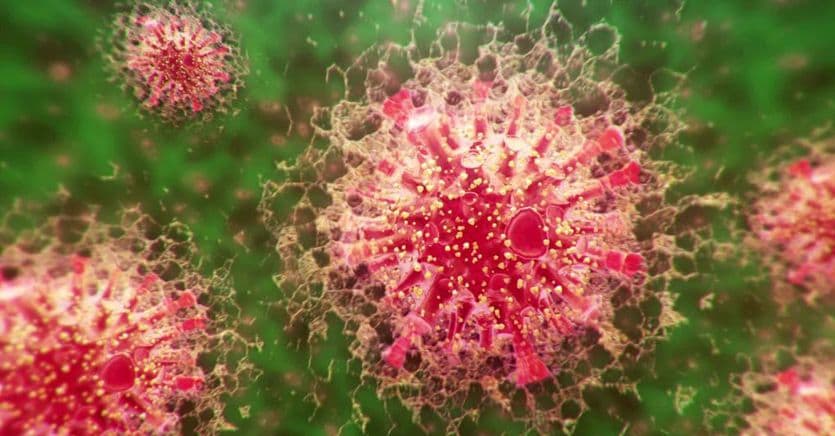A new study from the University of Pittsburgh, published in Cell reports, shows that antibodies that recognize the internal proteins of Sars-CoV2, and not just the Spike surface protein, could also be important for improving vaccines and therapies against the Covid-19 and predict the development of serious disease.
The research found that antibody profiles of internal viral proteins predicted diagnosis after infection as much as corresponding profiles of surface proteins, suggesting that targeting other parts of the virus besides the spike protein could be important to improve vaccines and treatments against Covid-19.
Researchers comprehensively analyzed antibodies to three canonical and four non-canonical antigens taken from blood samples of 21 patients (7 deceased and 14 survivors) hospitalized with severe Covid-19 in 2020, prior to approval. vaccines. Then, through an antibody profiling platform developed by them, they analyzed three key characteristics of the antibodies: the specificity of the antigen, that is the binding with the antibody; effector function, which concerns the role of the antibody in the immune response; glycosylation, or the addition of carbohydrate molecules to the antibody, which greatly affects its function.
From here, they found that no single antibody feature was able to differentiate patient survival outcomes.
‘While most studies on the characterization of humoral and cellular responses have focused exclusively on a small subset of Sars-CoV2 antigens, this study identifies other antibodies to non-canonical antigens / proteins. The researchers found that a single antibody profile is not predictive of patient survival. But when they analyzed the overall antibody profiles – canonical or non-canonical – they noticed clear differences between survivors and non-survivors – comments Alessandra Mularoni, head of Ismett’s Infectious Disease and Infection Control Service – These results could support the development of pan-coronavirus vaccines, and the study opens interesting perspectives towards understanding the meaning of antibody profiles in Covid and other contexts, including organ transplant rejection and other infectious diseases ».
